5th Floor, West Tower, World Financial Centre
1 Dong San Huan Middle Road
Chaoyang District, Beijing 100020, China
Tel: +86 10 5081 5880

May 25, 2024
2024 CGMA Global Finance and Accounting Talent Summit Convened
The 2024 CGMA Global Finance and Accounting Talent Summit was convened on April 11th in Pudong, Shanghai. The summit was jointly hosted by the Shanghai Advanced Institute of Finance (SAIF) of Shanghai Jiao Tong University (SJTU), the Association of Inter

May 24, 2024
Delegation from the Universitas Indonesia Visits SAIF
On April 19th, a delegation from the Faculty of Economics and Business, Universitas Indonesia (UI FEB), led by Dean Teguh Dartanto, visited the Shanghai Advanced Institute of Finance (SAIF) at Shanghai Jiao Tong University. The SAIF attendees at the meeti

April 27, 2024
The 15th Anniversary Celebration of the Shanghai Advanced Institute of Finance
On April 20th, the Shanghai Advanced Institute of Finance at Shanghai Jiao Tong University commemorated its 15th anniversary with a conference held at the Xuhui Campus. Nearly 700 distinguished guests convened, including representatives from government en
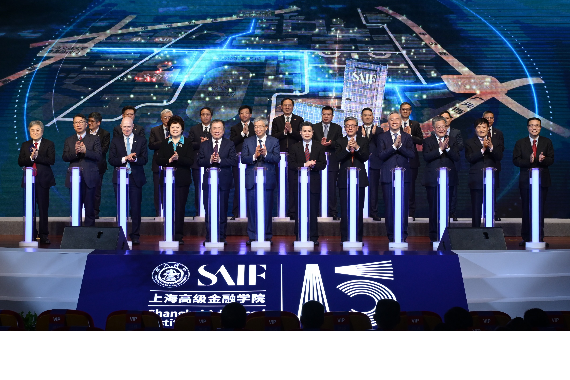
April 26, 2024
SAIF Professors Recognized as 2023 Highly Cited Chinese Researchers by Elsevier
On March 27th, Elsevier, a prestigious global academic publisher, unveiled the "2023 Highly Cited Chinese Researchers" list. Three professors from the Shanghai Advanced Institute of Finance (SAIF) at Shanghai Jiao Tong University (SJTU) were honored as Hi
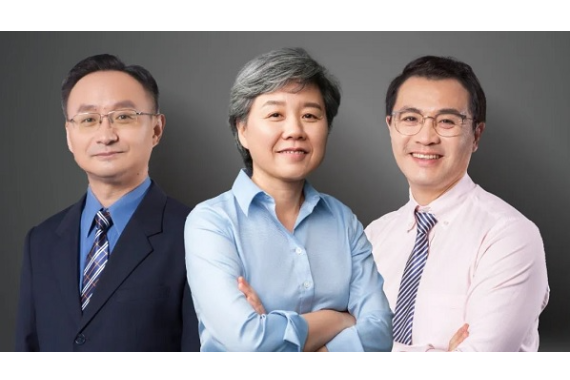
April 25, 2024
SAIF’s Three First-Level Disciplines Retain A+ Rating by THE
On March 27th, Times Higher Education (THE) released its China Subject Ratings 2024 report. Shanghai Jiao Tong University (SJTU) achieved an outstanding result, with 42 disciplines receiving the highest A+ rating. Notably, three disciplines co-constructed
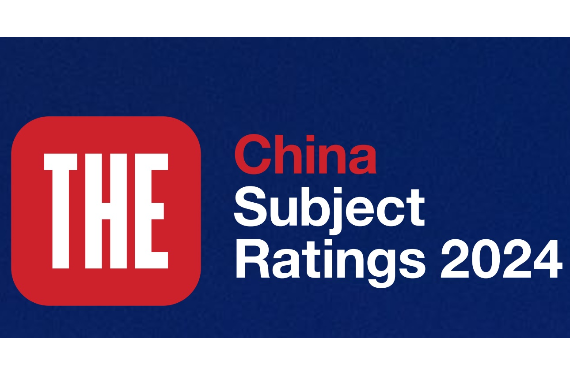
April 24, 2024
2024 QS World University Rankings by Subject Released
On April 10th, Quacquarelli Symonds (QS) unveiled its 2024 World University Rankings by Subject. The discipline of Accounting and Finance, represented by the Shanghai Advanced Institute of Finance (SAIF), secured the 47th position globally (3rd in mainlan

April 23, 2024
International Forum on "AI: Disruption and Innovation" Jointly Organiz ...
On March 15th, the Shanghai Advanced Institute of Finance (SAIF) at Shanghai Jiao Tong University and the Carey Business School of Johns Hopkins University successfully convened an international forum titled "AI: Disruption and Innovation" in Shanghai. Th
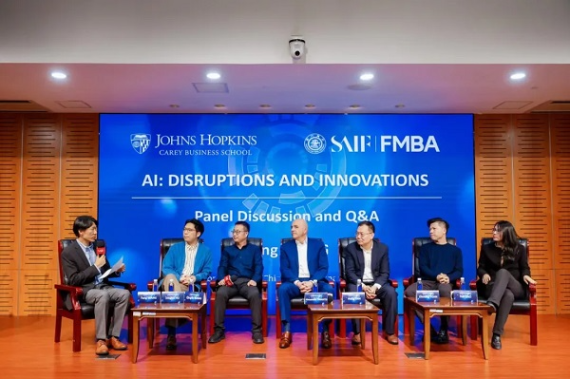
March 27, 2024
2024 SAIF Faculty and Staff Spring Semester Assembly and 2023 Retrospective
On February 28th, the Shanghai Advanced Institute of Finance (SAIF) convened the 2024 Faculty and Staff Spring Semester Assembly and the 2023 Retrospective and Recognition Ceremony. Guangshao Tu, Executive Director of SAIF, was in attendance and delivered
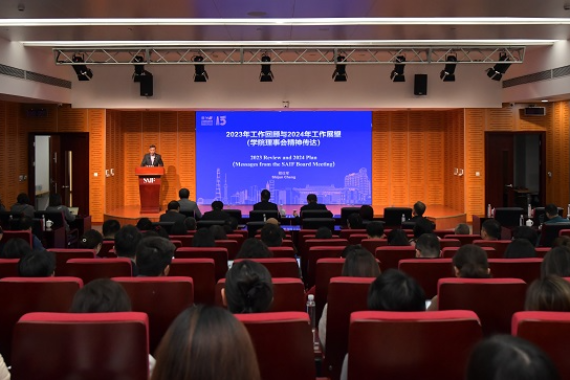
March 27, 2024
Publication of 11 Papers by SAIF Professors in Leading Academic Journals of 2023 ...
SAIF has marked significant strides in academic research during 2023, showcasing robust research capabilities and adherence to rigorous academic standards. Notably, 11 academic papers authored by our full-time professors have been published in the leading
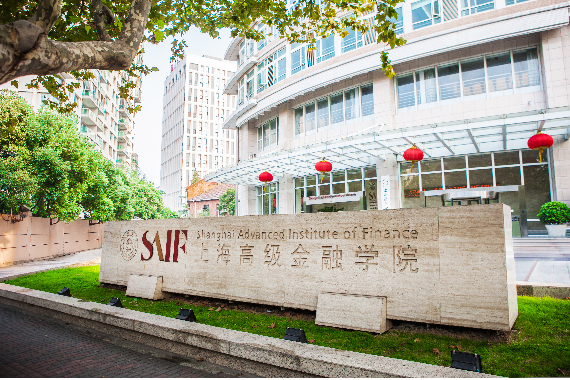
March 25, 2024
Singapore Seminar Held on Sustainability and Economic Cooperation
On the 27th of January, the seminar titled "The Imperative of Sustainable Development and Cross-Border Economic Cooperation" was successfully convened at the Bank of China Singapore Branch (BOCSB) building. This event was a collaborative effort between th
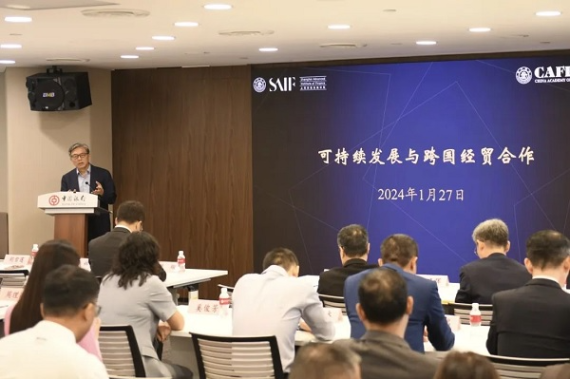

211 West Huaihai Road
Shanghai 200030, China
Tel: +86 21 6293 3500
9th Floor, Building T6, Hongqiao Hui
990 Shenchang Road
Shanghai 201106, China
3rd Floor, Building D, Chenfeng Building
800 Tongpu Road
Shanghai 200062, China
5th Floor, West Tower, World Financial Centre
1 Dong San Huan Middle Road
Chaoyang District, Beijing 100020, China
Tel: +86 10 5081 5880
1203 Tower 7, One Shenzhen Bay
Nanshan District, Shenzhen 518000, China
Tel: +86 755 8663 8815
© Shanghai Advanced Institute of Finance All Rights Reserved.


Top